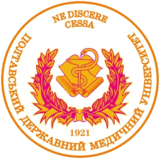Будь ласка, використовуйте цей ідентифікатор, щоб цитувати або посилатися на цей матеріал:
http://repository.pdmu.edu.ua/handle/123456789/19215| Назва: | Management of patients with chronic retinal diseases in the current conditions of the COVID-19 pandemic in the world and in Ukraine |
| Автори: | Korol, Andrii R. Bezditko, Pavlo A. Bezkorovayna, Iryna M. Zhaboyedov, Dmytro G. Zaychenko, Ganna V. Lutsenko, Nina S. Sergienko, Andrii M. Ulyanova, Nadiya A. Karliychuk, Maryna A. Pavliv, Oleksandra B. Shevchyk, Vasyl I. Король, Андрій Ростиславович Бездітко, Павло Андрійович Безкоровайна, Ірина Миколаївна |
| Дата публікації: | 19-кві-2021 |
| Видавець: | Ukrainian Society of Ophthalmologists, The Filatov Institute of Eye Diseases and Tissue Therapy |
| Бібліографічний опис: | Expert Consensus. Management of patients with chronic retinal diseases in the current conditions of the COVID-19 pandemic in the world and in Ukraine / A. R. Korol, P. A. Bezditko, I. M. Bezkorovayna [et al.] // Journal of Ophthalmology. – 2021. – № 2 (499). – P. 82–85. |
| Короткий огляд (реферат): | On November 18, 2020, the Advisory Board was held in virtual format to discuss the specifics of management of patients with chronic retinal diseases in the current conditions of the COVID-19 pandemic in the world and in Ukraine. The COVID-19 pandemic has led to a significant decrease in visits to ophthalmology clinics and a reduction in the number of required intravitreal injections in patients with retinal diseases worldwide (El Hamichi S. et al., 2020). Quarantine restrictions will continue to affect the work of ophthalmologists in varying degrees for a long time ahead. Inadequate ophthalmologic care for patients with chronic retinal diseases can result in partial or complete loss of autonomy for these patients and a significant decline in quality of life (Royal College of Ophthalmologists, 2020). According to experts, the actual and complete guideline for the management of patients with retinal diseases during the pandemic is Medical Retinal Management Plans during COVID-19 (Royal College of Ophthalmologists, 2020), which was last revised on September 22, 2020. Having analyzed the Medical Retinal Management Plans during COVID-19, the experts made their recommendations, considering the specifics of patient management in the current pandemic conditions in Ukraine. Thus, according to the Royal College of Ophthalmologists (RCO), in patients with neovascular age-related macular degeneration (nAMD), as a capacity of most clinics has improved, consider moving pre-pandemic protocols. In most cases, this would be a Treat and Extend (T&E) or individualized anti-VEGF treatment regimen. In rare situations, where clinic is still constrained by capacity issues, maintain all patients on fixed 8 weekly anti-VEGF therapy. Such patients may need Optical Coherence Tomography (OCT) and visual acuity assessments and management changed, if deemed appropriate. Members of the workgroup agreed that in the current pandemic conditions in Ukraine, the use of aflibercept has its advantages in both T&E and fixed protocols. Treatment of patients with nAMD is recommended to start with 3 initial monthly injections of aflibercept, followed by extension of the interval between injections up to two months. If there are no constraints in the clinic and the patient compliance is good, consider switching to T&E to adjust the interval between injections based on each patient's individual need. |
| Ключові слова: | Covid anti-VEGF injections |
| УДК: | http://doi.org/10.31288/oftalmolzh202128284 |
| ISSN: | 2412-8740 |
| URI: | http://repository.pdmu.edu.ua/handle/123456789/19215 |
| Розташовується у зібраннях: | Наукові праці. Кафедра оториноларингології з офтальмологією |
Файли цього матеріалу:
| Файл | Опис | Розмір | Формат | |
|---|---|---|---|---|
| Management_of_patients_with_chronic_retinal_diseases.pdf | 265,6 kB | Adobe PDF | Переглянути/Відкрити |
Усі матеріали в архіві електронних ресурсів захищені авторським правом, всі права збережені.



